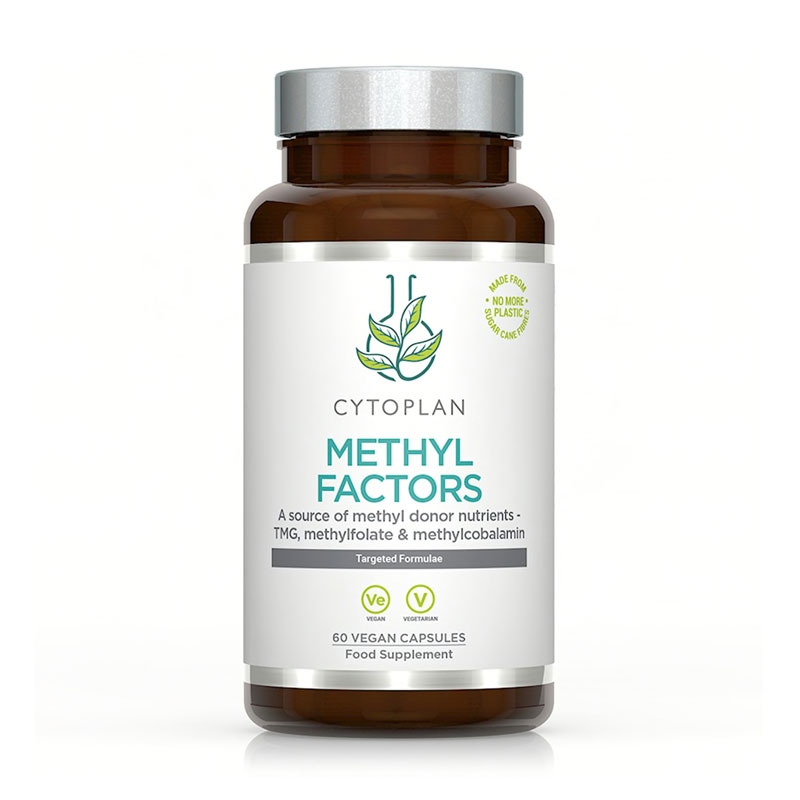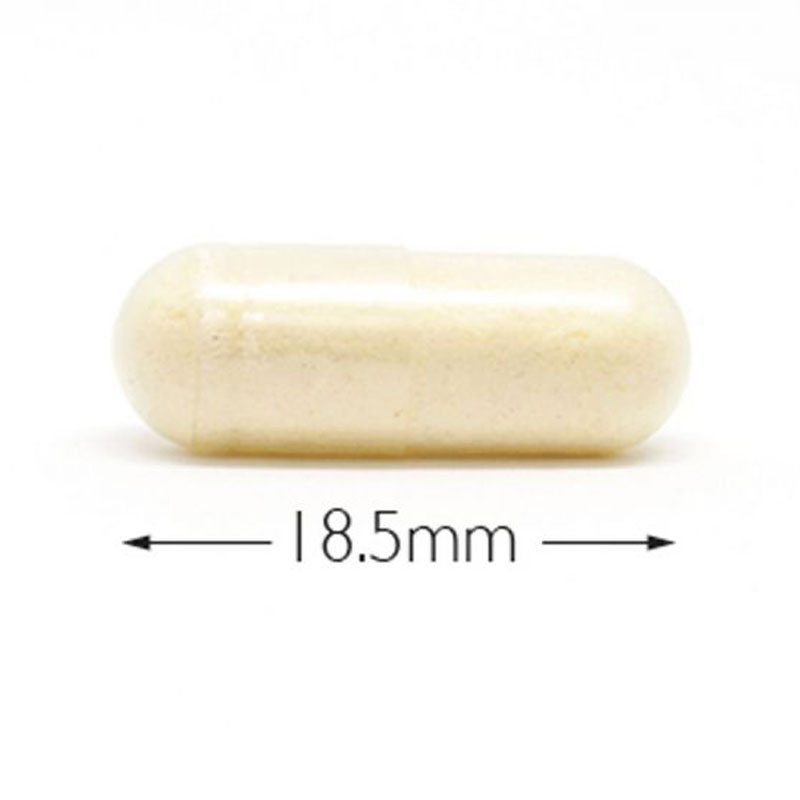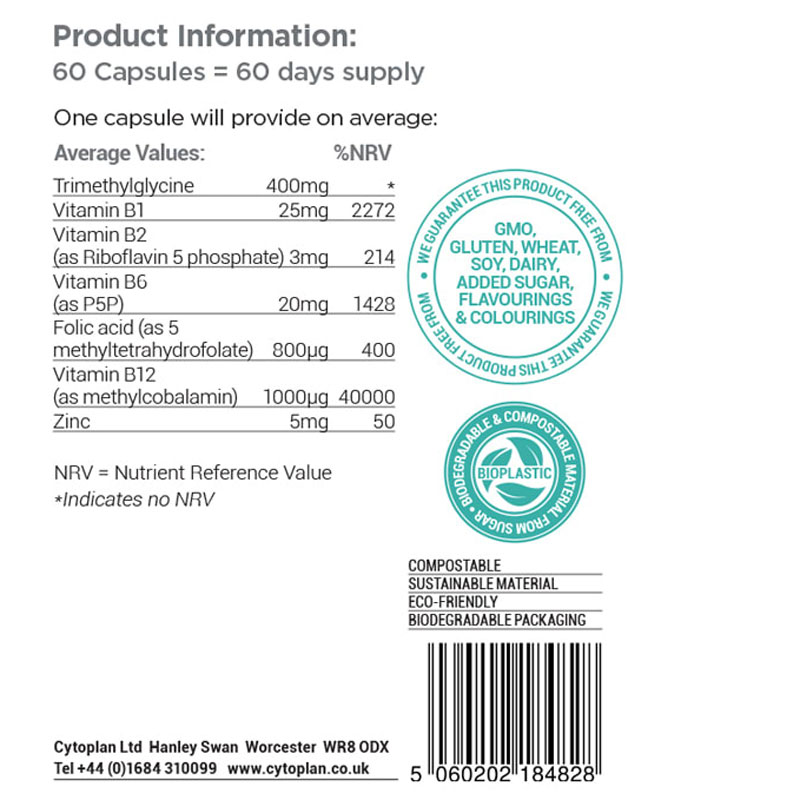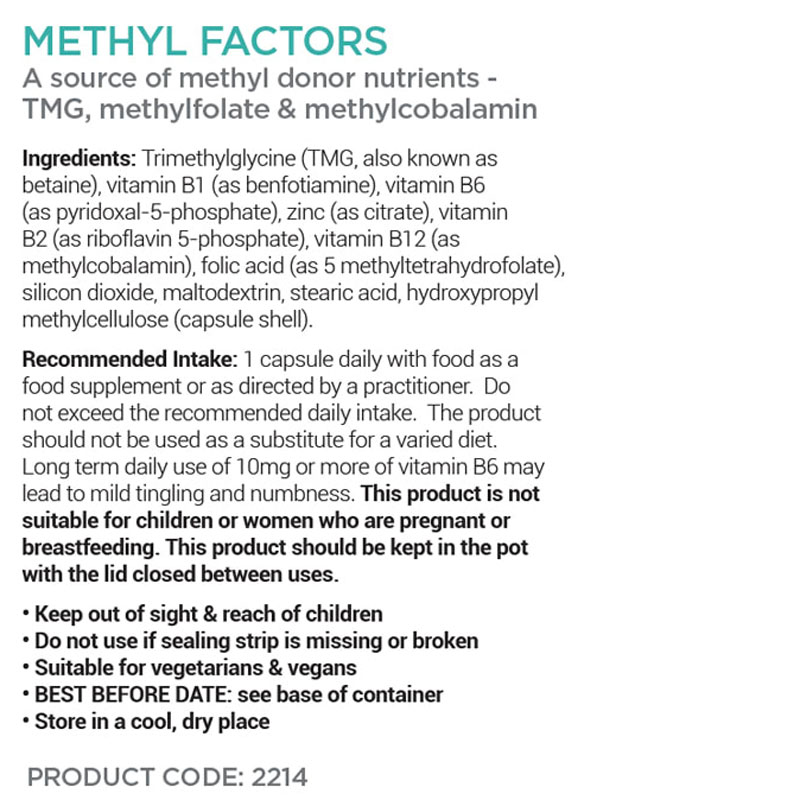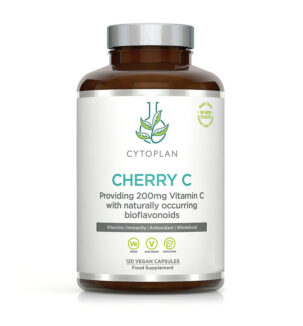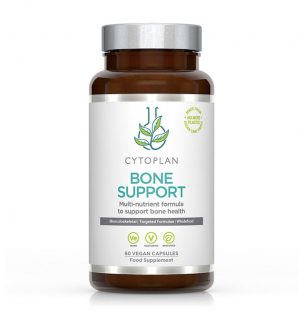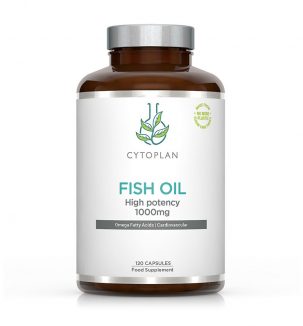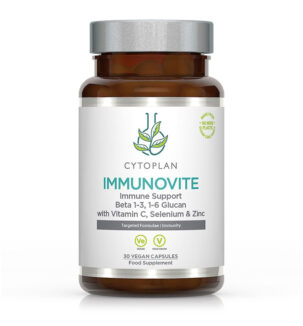Description
Improved Methyl Factors has been developed to provide extra methyl donor nutrients.
100mg of vitamin B1 in the form of benfotiamine has been added to improve the formula.
Benfotiamine is lipid-soluble. Methyl Factors also contains TMG (trimethylglycine) known as betaine, vitamin B6 (as pyridoxal-5-phosphate), folic acid (as L-methylfolate), vitamin B12 as methylcobalamin and vitamin B2 (riboflavin 5-phosphate) – all of these nutrients can donate methyl groups. The mineral zinc is also included in the formula.
Only recommended for use under the guidance of a practitioner.
- TMG, vitamin B6, vitamin B12 and methylfolate collectively provide methyl donor nutrients
- TMG is not the same as betaine HCL, which is not necessarily a methyl donor but is sometimes used erroneously for this purpose. Many diets are low in betaine from food sources
- Folic acid is included as methylfolate (5-MTHF) which is a stable and methylated form of folate. Methylfolate fulfils all the known uses of folic acid. Many supplements contain folic acid, however, folic acid has to undergo a number of steps within the body in order to be converted to the active form – 5-MTHF. The final step in this conversion is carried out in the body by an enzyme called MTHFR and some people have genetic mutations which means this enzyme has reduced efficiency in converting folic acid to 5-MTHF. Methylfolate does not need to be converted; it is in the active form, ready for use by the body
- This formula includes vitamin B6 in the form of pyridoxal-5-phosphate, the bio-active and enzymatically converted form of B6. There is evidence to show that some people with high homocysteine, for instance, and impaired methylation, lack the ability to effectively convert pyridoxine (the other supplement form of B6) to its metabolically active form
- This supplement includes vitamin B12 as methylcobalamin, an active form of B12. Some vitamin B12 products on the market are cyanocobalamin which needs to be enzymatically converted to methylcobalamin in the body. Vegan and vegetarian diets can be low in B12. Other people at risk of low B12 include those with digestive conditions that lead to malabsorption; low stomach acid (e.g. due to long-term antacid medication, proton pump inhibitors, H2 blockers, ageing or zinc deficiency); surgery where nitrous oxide has been used as an anaesthetic; and other prescription medications which impair B12 absorption (e.g. metformin, colchicine, neomycin and others)
- Folate, vitamin B12, betaine and vitamin B6 all have the permitted EFSA health claim of – “contributing to normal homocysteine metabolism”. High homocysteine is a risk factor for cardiovascular disease and cognitive decline



